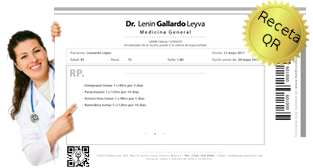June 15, 2011 por Dr. David
Comentarios (0)

Aggressive schoolchildren appear to be more likely to have sleep-disordered breathing than their more mild-mannered counterparts, a cross-sectional study showed.
Conduct problems, parent-reported bullying, and school disciplinary problems were all associated with higher scores on a measure of sleep-related breathing disorders, according to Louise O'Brien, PhD, of the University of Michigan in Ann Arbor, and colleagues.
"Our study was cross-sectional and cannot prove causality," they wrote online in Sleep Medicine, "but dose-response findings were consistent with the hypothesis that sleep-disordered breathing, and sleepiness in particular, could contribute to conduct problems in schoolchildren."
As for a possible mechanism, the researchers pointed to previous reports linking sleepiness with impaired emotional regulation.
The findings "raise the possibility that addressing the underpinnings of childhood sleepiness may offer a largely untapped opportunity to reduce the common problem of aggressive behavior in schoolchildren."
Bullying has potential negative consequences for both the aggressor and the victim.
Bullies are at risk for psychiatric problems, delinquency, substance abuse, antisocial behavior, violence, and criminal activity, whereas victims are at risk for damaged self-image, depression, and decreased quality of life, according to the researchers.
One possible biological contributor to aggressive behavior is sleep-disordered breathing, they noted.
To explore the issue, O'Brien and her colleagues looked at children in grades 2 and 5 (mean age 9) in the urban Ypsilanti (Mich.) Public School System. In that city of some 24,000 people, about 30% of the children live below the poverty line.
Parents of 341 children completed validated screening assessments for conduct problems, bullying behavior, and sleep-disordered breathing. Teachers provided assessments of conduct problems, behavior, and disciplinary problems in school.
Overall, 32% of the children were classified by a parent or teacher as having a conduct problem, 12% were classified as demonstrating bullying behavior, and 17% received at least two disciplinary referrals from teachers.
Nearly a quarter (23%) snored more than half the time -- which is suggestive of sleep-disordered breathing -- and were sleepier than those who did not habitually snore.
Children with conduct problems according to parent or teacher reports were significantly more likely than nonaggressive children to screen positive for sleep-disordered breathing (30% versus 14%, P
By Todd Neale, Staff Writer, MedPage Today
Published: June 02, 2011
Reviewed by Zalman S. Agus, MD; Emeritus Professor
University of Pennsylvania School of Medicine and
Dorothy Caputo, MA, RN, BC-ADM, CDE, Nurse Planne
www.medpagetoday.com/Pulmonology/SleepDisorders/26811


